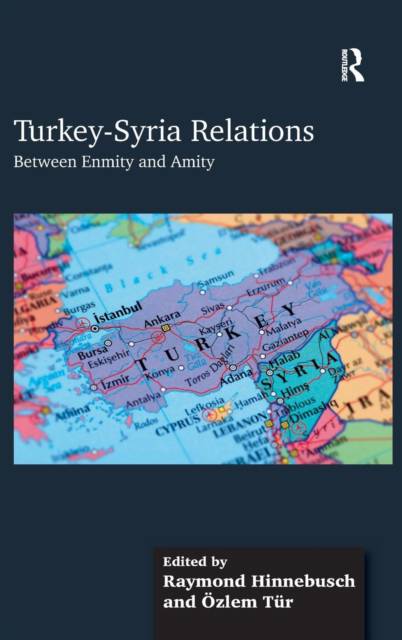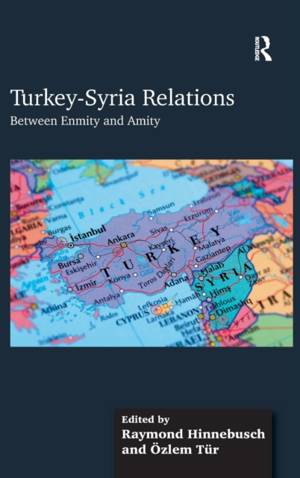
- Afhalen na 1 uur in een winkel met voorraad
- Gratis thuislevering in België vanaf € 30
- Ruim aanbod met 7 miljoen producten
- Afhalen na 1 uur in een winkel met voorraad
- Gratis thuislevering in België vanaf € 30
- Ruim aanbod met 7 miljoen producten
Zoeken
Omschrijving
In 1997 Turkey and Syria were on the brink of war, engaged in a very real power struggle. Turkey was aligned with Syria's main enemy, Israel, and there were seemingly intractable differences on the issues of borders, the sharing of river waters and trans-border communities. In less than a decade, relations were transformed from enmity to amity. What explains this remarkable change? Given that Turkey and Syria are two pivotal states in the region, what are the implications of this changing relationship for the international politics of the Middle East, the balance of power and regional stability? In this internationally collaborative work scholars address these questions and examine the various domestic and international drivers in this key regional relationship.
Alleen bij Standaard Boekhandel
+ 610 punten op je klantenkaart van Standaard Boekhandel
Beoordelingen
We publiceren alleen reviews die voldoen aan de voorwaarden voor reviews. Bekijk onze voorwaarden voor reviews.








